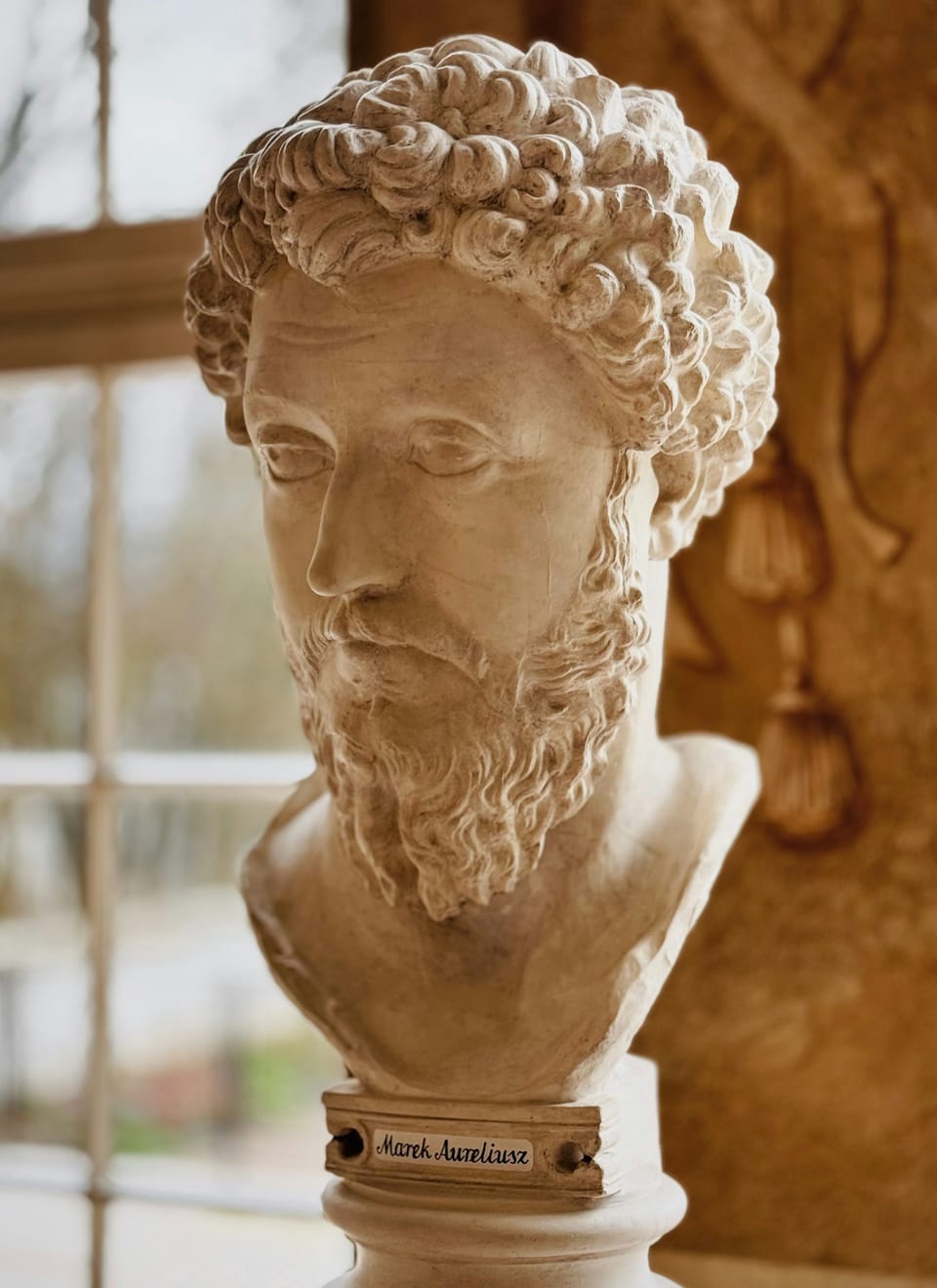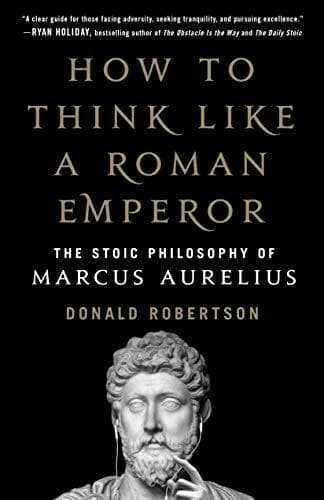Virtue I - Stoic

The noun 'stoic,' used to describe someone demonstrating mental fortitude during hardship, derives its meaning from the philosophy of Stoicism. While the term and the philosophy are conceptually linked, 'stoic' can also stand alone as a virtue.
Being stoic is often misunderstood as suppressing emotions in an unhealthy manner. This is not the case. Stoicism isn't about withholding love, or denying joy. It means being deeply attuned to our thoughts and emotions, allowing us to experience them fully without reacting to them in regrettable ways. Stoicism involves maintaining composure and mental stability regardless of circumstances. A stoic person is someone who can be a "rock" for others to lean on in times of distress. A descriptive metaphor for what it means to be stoic is to be like a rock on the shore of the ocean; unmoved by the crashing waves and changing tides.

Here is an example of the virtue of stoic in action:
A man and his family are out for a walk when they are confronted by an armed gunman demanding money. Despite feeling intense fear, the father remains calm, steps in front of his family, and hands the gunman his wallet. The gunman hurries off, leaving the family unharmed. Imagine if the father panicked and fled or impulsively attacked the gunman. Either response could have resulted in him or his family being killed.
Although a component, Stoicism as a life philosophy is far more comprehensive than the sole ability to maintain composure. Having 'Stoic' as one of your virtues can serve as a reminder to apply the totality of Stoic thought to your daily life.
Stoic philosophy emphasizes several fundamental themes
Memento mori - Latin for "Remember your death"
While this may come off as morbid, acknowledging our finitude is the best way to determine what truly matters. What experiences will you cherish on your deathbed? How can you contribute to the world today in a way that will make your future self proud when you take your final breath?
Do you really need to watch unending political drama on the news for another hour, or listen to an ESPN debate about who your favorite sports team should draft? Is engaging in petty arguments worth it? Are these really the best uses of your attention? Or would they be better spent having a conversation with a loved one you haven't caught up with in awhile? I'm not here to tell you how to spend your time, but I am here to tell you that you are going to die one day. So let that determine what you think, say and do.
Amor Fati - Latin for "Love your fate"
Rather than passively accepting fate, stoics embrace it. You can never live another life other than the one you are living, so anything that "life," or "fate," throws at you presents unique opportunities to strengthen your character, exercise your virtues, or find silver linings. No matter what cards we're dealt, we might as well love them, because they're the only cards we can play, and they will make us better card players.
The four Stoic virtues
- Courage - Acting rightly despite fear.
- Justice - Treating others as they deserve.
- Temperance - Moderation, in all things.
- Wisdom - Continual pursuit of knowledge and learning from experiences.
The three Stoic disciplines
- The discipline of Perception - Involves viewing everything, including external events and workings of the mind, pure objectively.
The way we perceive things should be as true to reality as possible, without the addition of unnecessary value judgments that stain our interpretation.
Application of the discipline of perception:
Example #1 - You get fired from your job
- Poor execution: "My boss is such an asshole! He has some nerve ruining my life like that. There's no way I'll be able to pay rent now. What if I get evicted and end up homeless?
- Proper execution: "I am no longer employed and thus have lost my primary source of income. The best course of action is to negotiate a severance package and work with my landlord to offer a grace period while I'm between jobs. If all else fails I can file for unemployment."
Notice the difference in the use of language. The former used exaggerated words (emphasized in italics) which had a catastrophizing effect. The latter stated the facts as pure reflections of reality. In this way, you can curate the texture of your mind to be equanimous and free from hysterics. You have the power decide whether or not you will allow something to bother you. This is the essence of the discipline of perception.
You can augment the discipline of perception by consciously choosing to view every occurrence as an opportunity to develop your character.
Example #2 - You are assigned to complete a challenging project with a particularly irritating and useless classmate/co-worker.
- Poor execution: "So and so is lazy, I'm going to have to do all the work myself and I just can't stand how obnoxiously rude he is. This is going to suck."
- Proper execution: "Since so and so has a reputation for lacking effort and kindness, this project will be a great opportunity to exercise my interpersonal skills to get the best out of my partner. No one does wrong knowingly, so I should apply the virtue of patience and be compassionate."
While the non-stoic cultivates self-imposed misery, the stoic not only suffers less, they become a better person while actively improving their skills.
This what doesn't kill you only makes you stronger mentality is central to a growth mindset, which is the most conducive framework for converting unnecessary suffering into personal development, but is unattainable without disciplined perception.
- The discipline of Action - Governs our approach to to everything within our control.
The discipline of action requires that we first use the discipline of perception to distinguish between what we can control and what we cannot. Once we've identified what is within our sphere of control, the discipline of action encourages acting with reason and purpose, guided by virtues. We shouldn't act on random impulses, but rather investigate our motivations and consider the consequences of our actions.
The discipline of action also states that we should "live as our nature requires," which essentially means to live life on our own accord, not to appease or impress others. There's nothing wrong with heeding advice, but we are accountable for our own actions, and should always make an effort to put our best foot forward regardless of external influence. If we make mistakes, we take responsibility for them, live, and learn.
Once we determine what is in our control and apply the discipline of action accordingly, the rest is left to...
- The discipline of Will - Rules our attitude to everything that lies outside our control.
A metaphor that nicely describes the discipline of will is that fate is like being tethered to a moving cart. We can either walk beside it with dignity, or be dragged kicking and screaming, going the same way regardless. Which seems more conducive to tranquility? If hail destroys your car, is there any sense in cursing the gods and spending the rest of your day ruminating about it? You're kicking the cart.
I want to be clear that this does not imply passivity. This only applies to things that are completely, entirely, 100% out of our control. Even if we don't have complete control over something, we should still make an effort to exert a positive influence. For instance we don't have full control over the behavior of our children, but we are still obliged to do our best to influence them in a way that will facilitate their flourishing into respectable adults.
Takeaway: "Do your best and forget the rest."
IT CANNOT BE OVERSTATED: The effectiveness of Stoicism lies in its application. Understanding its principles without putting them into practice is a significant disservice to yourself and others. After learning these concepts, I strongly recommend adopting a journaling practice to hold yourself accountable. Each evening, reflect on the day, celebrate instances where you successfully applied Stoic principles, and note missed opportunities for future improvement.
The quality of your life and your relationships depends on the quality of your mind. The world needs more people with trained minds. What's stopping you from being one of them?
Recommended reading:

